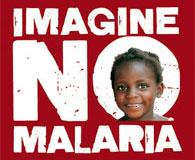
Story and Photo by Matt Brodie
WASHINGTON, D.C. – The S.C. Conference of The United Methodist Church sent a four-member advocacy team to Washington, D.C., joining more than 100 other United Methodists from 40 annual conferences and 30 states to help end malaria.
The teams swarmed Capitol Hill Dec. 2-3 to advocate for continued support of foreign aid funding to fight the mosquito-borne illness.
The Rev. Amiri Hooker, the Rev. Karen Jones, the Rev. Jeri Katherine Sipes and Conference Communications Director Matt Brodie spent two days in the Capitol learning about malaria-related issues and how to be an advocate on the Hill. They also met with staff members at Sen. Lindsey Graham and Sen. Jim DeMint’s offices.
The first stop the team made was with a staffer for Graham, who has a record of being highly supportive of foreign aid and the U.S. Global Health Fund. Team members said Graham’s office was very informed about the issues that surround malaria and seemed both excited and grateful to be meeting with the team.
“We went in expecting to have to give a lot of information, but we ended up getting a lot of great advice and talking points to take with us to Sen. DeMint’s office,” Jones said.
The advocacy team then met with a staff member for DeMint, who the team said was receptive and open – as well as happened to be a United Methodist.
“It was very affirming to hear directly from our senator’s office that they appreciate and even rely on the church as trusted partners to get the money on the ground, directly to those in need,” Jones said.
The Global Health Fund, started by President George W. Bush and continued by President Barack Obama, traditionally has enjoyed bipartisan support. The advocacy teams were encouraging members of Congress to keep the funding at the current level of $670 million a year, as proposed by the Senate, instead of the proposed cut of $20 million coming from the House.
Efforts working
Malaria, a disease carried by mosquitos, is a curable, treatable and preventable illness. Through the efforts of the UMC, malaria-related deaths have dropped from one child every 30 seconds to one every 60 seconds.
“We’ve cut the death rate in half,” Sipes said. “It shows that this campaign is working. We can eradicate malaria as long as we don’t give up.”
Jones added, “The infected mosquito is not our Goliath. Rather, the obstacles we face are negligence, apathy and ignorance – none of which are acceptable reasons to abstain from helping our brothers and sisters suffering from malaria.”
Lobbying can help do more
The U.S. currently spends less than 1 percent of its budget on foreign aid. Advocacy “Days on the Hill” are an important part of the UMC’s General Board of Church and Society’s goals and can help drive up U.S. support for ending malaria, said Clayton Childers, coordinator of Imagine No Malaria for the GBCS.
“People in Congress need to know that the church is concerned about malaria,” said Childers, who hails from S.C. “It’s a testimony to our values as Christians.”
Childers noted now is a “critical time” for the church to lobby for continued foreign aid, given the current political climate and talks of budget cuts.
In all, the S.C. advocacy team said they were honored to be able to travel to the Capitol and do their part to imagine no malaria.
“Going to Capitol Hill and stressing the needs to fund the Global Health Fund, the president’s malaria initiative and the church’s Imagine No Malaria campaign makes me feel like a real Wesleyan,” Hooker said. “Speaking to elected officials is new for me, and I discovered that it is both necessary and part of a higher calling to build God’s Kingdom.”
S.C. United Methodists and those all over the connection can continue to be active and support the Imagine No Malaria Campaign. April 25 is World Malaria Day, and United Methodists all over the globe will be helping to swat malaria out. People are encouraged to visit www.imaginenomalaria.org to learn more and donate funds. One hundred percent of what is donated to Imagine No Malaria goes directly to the cause.

